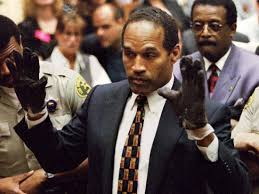 When we are speaking, we want to get our point across, so it resonates with the audience such that some, if not all, will take action. If we are not successful, we will not achieve our objective. But suppose if you are a prosecutor and your objective is to put bad guys away. If you don't resonate with the jury in your rebuttal argument, you could lose the case. Bad guys go free. You don't get a second chance. We all remember the famous OJ Simpson trial. The trial lasted for eleven months. In the famous closing argument, Johnny Cochran, OJ's lead attorney, exhorted to the jury that "If it doesn't fit, you must acquit." Cochran was referring to the botched effort by the prosecution to have OJ try Aris Light gloves. Since OJ was wearing latex gloves, it didn't fit. That failed demonstration helped acquit OJ since the jury saw it and OJ made sure the jury saw it. And Cochran made sure in his closing argument that the jury did not forget that the gloves didn't fit. The jury didn't forget. They deliberated less than four hours to find OJ not guilty. What Cochran did was he did not make the jurors think too hard. The jurors saw with their own eyes that gloves didn't fit; hence, they ignored all other evidence. Though prosecution had better facts, it did not have a better story. And that is often the difference between winning and losing since both sides are persuasive in their arguments. A prosecutor gets to make the rebuttal argument. It is the last argument the jurors hear before deliberating. The challenge the prosecutor faces is to come up with an argument that is simple, clear, and memorable so the jurors can latch on to that and come up with the justification they need to find the defendant guilty. And it has to better than the one defense attorney uses to acquit their client(s). So how do you make the jury not think hard? One way to do it is by using a children's poem. Anything a children can understand then adults are certainly going to understand. Jason Masimore, a prosecutor in the Southern District of New York (SDNY), used a children's poem to convict Republican State Senate majority leader of New York, Dean Skelos. Preet Bharara explains this in his book Doing Justice. Skelos was a powerful man in New York politics. He abused his position by extorting money from businesses that went to his son, Adam Skelos. The SDNY, led by Preet Bharara, charged Dean Skelos with conspiracy with his son. The SDNY had strong evidence against both the father and the son. Still, Bharara did not want to take any chances. Some jurors could be sympathetic to defense's best argument that Dean Skelos was just being a good father by helping his son. To game-out this argument, SDNY hired a jury consultant to see what the focus group said during the deliberation. Most in the focus group were not persuaded by the father-son argument, but some did bring it up. So SDNY had to come up with a better story in their rebuttal argument. And they did. Jason Masimore had read to his son a poem "gorilla" from Shel Silverstein chidren's book Where the Sidewalk Ends. In the poem, this kid goes to school riding on top of a gorilla, and everybody is nice to him. He gets presents. He gets all As. Life is really good for the kid because others know that if they piss off the kid, then he will unleash the gorilla on them. No one wanted that to happen so they did whatever it took to satisfy the kid. Adam Skelos did not have to say anything or do anything to extort money from businesses to pay him. Businesses knew how powerful his dad was. Masimore explained to the jury: "The gorilla in this case that you heard about, it's the power of the office of the senate majority leader." This children's poem was a perfect metaphor since it got to the heart of how an abuse of power works. The use of it helped convict Dean Skelos and Adam Skelos. This example shows that whenever you are making a case, you need a better story than your competitors to persuade decision makers. You need an argument that is simple, clear, and memorable. If this could work in a high stakes criminal prosecution, it will work in business or anything. ##### 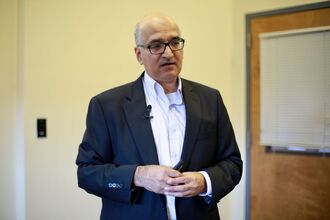 Jay Oza is an author, speaker, executive coach. He makes people thrive on high stakes stage whether it's for a job interview, a sales presentation or a high-stakes speech. He is the author of a practical book Winning Speech Moments: How to Achieve Your Objective with Anyone, Anytime, Anywhere. You can get this book on Amazon for 99 cents for a limited time. Please download the free speech checklist that you can use to help you create a winning speech for any situation. Please contact him if you would like to have a two 75 minute coaching session on job interviewing or high-stakes speaking. If you are interested in inviting him to give a talk on job Interviewing or high-stakes speaking. You can reach him at [email protected].
0 Comments
Hiring the right candidate for a job is hard, especially if it's for a high-level position. Whomever you hire will either help you win or lose; hence, the stakes are very high. When hiring, there are usually three types of candidates you end up considering: 1) Candidates who are NOT interested. 2) Candidates who really want the job. 3) Candidates who are interested. In this blog post, I focus on #1, those who are not seeking the job you have or are even interested in the beginning. For you to get these candidates, you need a lot of skills besides sales. In future posts, I will cover #2 and #3. Candidates who fall in to category #1 have no competition and it is up to them whether they take the job. Note, this position is not advertised. The only person who knows about this position is the person who is hiring. And this happens at high-level, mid-level and low-level. You want to get into this category by letting people know you are worth the bet. Why target those who are not interested? They are likely to help you win if you can persuade them to work for you. It won't be easy. The uninterested candidates require time, patience, flexibility, and gentle persuasion. If you want to be an effective leader, you must do whatever it takes to get these people on your team. You see this in football, both NFL and college. The winning coaches have outstanding assistant coaches. All good coaches want to work for Bill Belichick, head coach of NFL's New England Patriots, and Nick Saban, head coach of the University of Alabama. If an assistant coach is good and lucky to get to work for these two great coaches and help them win, that assistant coach will have an excellent shot at getting the head coaching job either in the NFL or college. It's no different in business and politics. In this post, I use as an example of how Barack Obama got Joe Biden to become his vice president. I show the ten steps that are required to entice talent and demonstrate you are indeed an effective leader. The source for this post is Joe Biden's book, Promise Me, Dad. The candidates are going to go through these three phases. First, the candidate is going to go from not interested to interested. Second, the candidate is going to go from interested to serious consideration. Third, the candidate is going to go from serious consideration to acceptance. Below you will see what you have to do to take the candidate through these three steps. If you sell too hard or close to fast, it can backfire. Remember, the uninterested candidates have options so you have to foremost develop a relationship. You have to show that you are a good bet. Steps To Hire Someone Who Does Not Want the Job 1) Express Interest in Hiring Barack Obama, after he had secured the Democratic nomination in 2008, contacted Joe Biden to vet him for vice president. Joe Biden's initial response was that he was not interested. Though Obama made it appear that Biden was the leading candidate and tried to close him by telling him that "This is real...But I need an answer right now." Joe Biden said, "Then the answer is no." What do you do if you were Obama? Move on to other candidates or persevere? This must have been hard for Obama to be rejected right after he locked up the Democratic nomination. If this happened to us, our ego is likely to get in the way. But you must learn to suppress your ego when you are trying to get talent if you want to be an effective leader. The uninterested candidates are going to be very challenging since they are not looking for a change. They are happy and secure where they are. Your work is cut out for you. Until they feel you care about their well being and future, they are not likely to want to take you or the job seriously. 2) Keep Trying Don't give up, if rejected. It's a long game. If you want to be successful, then hiring has to be one of your strengths. Talent is rare so you have to work hard to get those that you believe will make a difference. If you can't assemble an "A" team and get them to work well together, you are likely to fail and, worse, be blamed for failure. To get talent, you must be humble, patient, and flexible. 3) Show Patience If you want someone that is hard to get, you have to be patient since that person does not care if you don't hire him. He has to feel like he can make a difference. This takes some intense trust-building. Also, you must show empathy by urging the person to talk it over with the family. Why? Others close to the person are more likely to better persuade the candidate than you. They will provide a different perspective that can easily cut through. In Joe Biden's case, his sons wanted him to run with Obama. They felt---and were proven right--- that Biden can help Obama win Pennsylvania, Ohio, and Florida. His wife Jill was relieved that it was not the Secretary of State job since that would require a lot of traveling. But his mother may have been most effective in persuading Biden to take the VP job seriously when she said, "So let me get this straight, honey. The first African American in history who has a chance to be president says he needs your help to win—and you said no." So after talking to family, he started doing some serious due diligence. Pro: Make history by helping elect the first African American nominee. Con: The vice president position has been a butt of all kinds of jokes. Challenge: Reinvent the vice president position to make it work for both. There was one more thing that Biden had to overcome: he had not worked for a boss for several decades. When he brought this concern to his wife, she said, "C'mon, Joe... Grow up." Joe Biden went from not interested to interested. He finally agreed to be vetted but still wasn't committed. He still needed to have a one on one with Obama to discuss Obama's vision and priorities for the country and what role he envisioned for Biden. They were now entering a trust-building phase of the hiring process. 4) Develop Rapport Biden met with Obama and wanted to understand what Obama's expectations were. He found out that Obama wanted his help with foreign policy, an area Biden was strong in. Biden liked Obama's focus on helping the middle class. After their one on one meetings, Biden had a better understanding of Obama's vision for the future and the role he saw Biden playing. Biden was convinced that Obama was honest and could be a good president. Biden felt he could help Obama not only win but govern. But he still needed to be comfortable with the role that would make him happy. Joe Biden went from interested to giving the job a serious consideration. 5) Redefine Job Joe Biden liked Obama, but he still had not defined his role to make him accept the job. Joe Biden had experience in many areas based on his years in the senate, so he felt he can help Obama in all areas. Here is how he defined his role to Obama: "I want to be the last guy in the room on every major decision... You're president. I'm not. I get it. But if it's my experience you're looking for, I want to be the last guy to make the case." Obama agreed and got the man he wanted to be his vice president. They were both happy. But now they had to make it work. You can stop here and say that you got the person you wanted, but you will not be able to attract talent in the future. You must do more. And the next five steps are what you have to do to continue to attract and develop talent to remain an effective leader. 6) Build Trust Trust does not happen with one meeting. It has to be built and nurtured. And that's why Joe Biden wanted to have a weekly lunch meeting with Obama. It worked. It is something that not only helped them develop a strong working relationship but build deep friendship. 7) Give Responsibility If you hired well, then you must give the individual the responsibility to shine. And that is what Obama did with Joe Biden. Obama made Biden responsible for Iraq, Recovery Act, Ukraine, Northern Triangle, Cancer, and others. Biden did a good job with all the areas he was responsible for. 8) Grow into the Next Job The person has to do a good job, so his profile is enhanced and makes him attractive for a top job. In Biden's case, the president. In the corporate situation, this could be the top job at the same company or other companies. 9) Support and Promote If the person has done an excellent job and helped you win, you must do your part to support the person and promote him for a future top job. Again to use a football analogy, Bill Belichick has so many assistants who became head coaches. 10) Make Successful Once the person gets the top job, you have to help him in any way possible so he succeeds. As you can see, there are a lot of steps, but this is what's required. Great leaders do this, and that's why people want to work for them. ##### 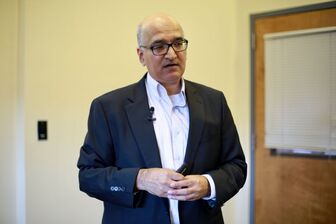 Jay Oza is an author, speaker, executive coach. He makes people thrive on high stakes stage whether it's for a job interview, a sales presentation or a high-stakes speech. He is the author of a practical book Winning Speech Moments: How to Achieve Your Objective with Anyone, Anytime, Anywhere. You can get this book on Amazon for 99 cents for a limited time. Please download the free speech checklist that you can use to help you create a winning speech for any situation. Please contact him if you would like to have a two 75 minute coaching session on job interviewing or high-stakes speaking. If you are interested in inviting him to give a talk on job Interviewing or high-stakes speaking. You can reach him at [email protected]. In his book, "Promise Me, Dad: A Year of Hope, Hardship, and Purpose," Joe Biden writes about the first time he met Barack Obama. This meeting tool place right after Obama became a junior senator from Illinois. Obama wanted to meet with Biden to pay his respects and express his interest in being on the Foreign Relations Committee. Biden was the top Democrat, and since there was an open seat, he could make it happen. Biden was already considering Obama for that seat because he felt that Obama would be a good asset to have on the committee. Since they did not have much time to talk when they met, Biden suggested they ought to get together soon for a meal together after work. Biden said he knew an excellent Italian restaurant nearby. And he further added, "It was not too fancy." Obama probably latched on to the word "not fancy," and said that we can go to a nice place, and added, "I can afford it." Biden latched on to the word, "I can afford it." We have a future president and his future vice president developing a negative first impression of each other. And this is based on how both interpreted the phrase "not too fancy" and "I can afford it." We all run into this misunderstanding when we are meeting someone for the first time. We latch on to every word or phrase and then develop a first impression that is very hard to change. Often, relationships start or end with the first impression. Biden initially felt that Obama was arrogant for saying, "I can afford it." Obama probably thought that Biden thought that he could not afford to go to a fancy restaurant. So how did this first impression change? By getting to know each other a lot better. But after Biden got to know Obama a little better, Biden was able to better understand why Obama would say, "I can afford it." Biden felt that Obama might have been offended that Biden took him for someone with limited resources to afford a fancy restaurant. But he points out that Obama probably did not know that he was indeed a man of limited resources that's why he said the restaurant he had picked out was not too fancy. How often do we meet people, and things get said, and we develop a wrong impression? Biden and Obama invested time in getting to know each other better such that Obama picked Biden as his vice president and developed a strong friendship that he goes on to describe in his book. So learn from these two successful leaders that trusting relationships are hard to start and even harder to nurture. It takes a lot of work. And no one knows how to build and nurture relationships better than Joe Biden. That is his superpower. ##### 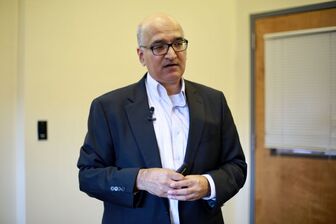 Jay Oza is an author, speaker, executive coach. He makes people thrive on high stakes stage whether it's for a job interview, a sales presentation or a high-stakes speech. He is the author of a practical book Winning Speech Moments: How to Achieve Your Objective with Anyone, Anytime, Anywhere. You can get this book on Amazon for 99 cents for a limited time. Please download the free speech checklist that you can use to help you create a winning speech for any situation. Please contact him if you would like to have a two 75 minute coaching session on job interviewing or high-stakes speaking. If you are interested in inviting him to give a talk on job Interviewing or high-stakes speaking. You can reach him at [email protected]. Change. We have elections to change the direction of the country. The political candidate that does the best job in selling change usually wins. Companies also hire for change. The Board or the CEO usually hires a candidate that best shows what he or she will change that will result in growth. If you are not changing, you are stagnating and soon to be roadkill. Without having any ideas for change, you are just seeking power, position, prestige for its sake. You are unlikely to engender confidence that you are indeed the change agent the company is looking for. We don't know what kind of questions Steve Jobs and the Board of Apple asked Tim Cook before making him the CEO. But the best decision Apple has ever made was hiring Tim Cook as the CEO. Jobs was right, yet again. Jobs didn't pick Cook because he was like him, but he knew that Cook had what it took to take the company to the next level. Tim Cook has changed Apple in one significant metric that matters above all in business: Market Capitalization. Apple's market capitalization was around $300 billion when Jobs died (about a decade ago). As of this writing, it's market capitalization hit $2 trillion. I would say that is a change Apple shareholders are happy about. The same can be said about Satya Nadella, CEO of Microsoft. He has been a terrific change agent. He instilled a culture of growth mindset at Microsoft, changed the way Microsoft did business with partners, and bet heavily on cloud computing for its future growth. Many of these changes have paid off, as its market capitalization will also soon hit $2 trillion. Cook and Nadella are famous examples of change agents, but that is what is expected of those the company is counting on for growth. You must address the change question. It is a do or die question in any job interview, especially a C-Level position. What would you change about your predecessor's policies? David Cote, the former CEO of Honeywell, writes about this in his book "Winning Now, Winning Later." This is the question Cote asked when he was interviewing a candidate for the CFO job. By change, he meant how the candidate would build upon what the previous CFO had done. That means you as a candidate have to know what the former CFO did, but what would you change to make the company grow or keep growing. Like a Japanese locomotive pilot, you are asked to point and call before joining, so the CEO knows that you are not going to turn out to be a train wreck. So here is what happened during the interview when this word came up. The CFO answered he would change nothing. Cote challenged him and asked the same question again. Again, the candidate said he would change nothing. Cote is getting anxious. He said to the candidate that he will step out of the room for fifteen minutes, and if the candidate does not come up with few things he would change, he is not getting the job. Guess what happened? The candidate came up with eleven significant changes he would make. According to Cote, they were all excellent ideas. The candidate got the job and went on to become an excellent CFO. I am sure all other CEOs are probably asking this question. Without giving a lot of thought to this question, you are not likely to get the C-Level job. Companies want strategic position---choices you have to make, so company wins--- occupied by strategic thinkers. They are hard to find, and you will not know whether you made the right hire for at least two years. ##### 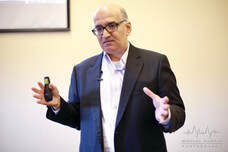 Jay Oza is an author, speaker, executive coach. He makes people thrive on high stakes stage whether it's for a job interview, a sales presentation or a high-stakes speech. He is the author of a practical book Winning Speech Moments: How to Achieve Your Objective with Anyone, Anytime, Anywhere. You can get this book on Amazon for 99 cents for limited time. Please download the free speech checklist that you can use to help you create a winning speech for any situation. Please contact him if you would like to have a two 75 minute coaching session on job interviewing or high-stakes speaking. If you are interested in inviting him to give a talk on job Interviewing or high-stakes speaking. You can reach him at [email protected]. 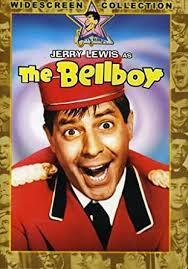 Jerry Lewsis as Stanley the Bellboy. Source: Amazon.com Jerry Lewsis as Stanley the Bellboy. Source: Amazon.com In the comedy movie Bellboy, Jerry Lewis is in a double role. In one role, he plays himself, and in the other role, he plays Stanley, a bellboy, who runs into trouble by making mistakes. While Stanley is causing trouble, you don't see him talking to anyone. We find out why at the end. At the end of the movie, the hotel manager, Mr. Novak, barges into a meeting that the bellboys are having to discuss what action to take against some hotel policy they are not happy with. Mr. Novak confronts Stanley since he was standing, and about to say something. Mr. Novak assumes that Stanley is the ring leader and starts yelling at him for being a screw-up. Stanley denies it by violently shaking his head. Mr. Novak has had enough of Stanley's shenanigans and asks, "What's a matter with you? Can't you talk?" Stanley, after a brief pause, calmly replies, "Certainly I can talk. I suspect I can talk as well as any other man, Mr. Novak." The manager is surprised and asks Stanley, "In that case, how is it that we have never heard you talk before?" Stanley replies, "Because no one ever asked me." And he leaves the meeting whistling, and the movie comes to an end. The message is clear that we can all look very silly when we don't ask. (You can view the video of that scene on YouTube.) In the movie, Stanley did not see the need to talk since no one ever asked. Now the movie Bellboy is a comedy, and we can have a good laugh since we know this can only happen in movies. Are you sure about that? This often happens in life and business. We are all guilty of it. And we look silly when it happens to us. I will give you one example from business that David Cote, former CEO of Honeywell, writes about in his excellent book, "Winning Now, Winning Later." He cites a story of not asking when he was working at GE. GE had developed Advantium ovens that combined the capabilities of a microwave oven and heat lamps of a conventional oven. But the question is how to make it work in the same size as a microwave oven. The marketing people came up with a way to do it with two doors, but it would have been clumsy for users. Cote, who was running GE's appliance business, asked a technology guy if it was possible to have one cavity in the oven that could emit both microwaves and heat lamps using a switch? After thinking briefly, the technology guy said, "Yeah, we can do that." The marketing guy was taken back and asked the technology guy, "Why the hell didn't you tell us months ago when we were first concepting this product?" The technology guy said, "You never asked." Cote gives this example to make a point that many companies struggle with communication between marketing and technology. So we are all like people who interacted with Stanley in the movie, Bellboy. They just assumed he could not talk. They were wrong. They never asked. The first rule of communication is to: Just Ask, Don't Assume. ##### 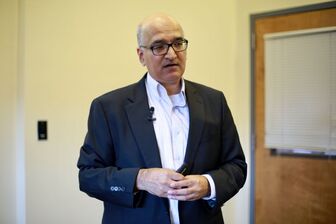 Jay Oza is an author, speaker, executive coach. He makes people thrive on higstakes stage whether it's for a job interview, a sales presentation or a high-stakes speech. He is the author of a practical book Winning Speech Moments: How to Achieve Your Objective with Anyone, Anytime, Anywhere. You can get this book on Amazon for 99 cents for limited time. Please download the free speech checklist that you can use to help you create a winning speech for any situation. Please contact him if you would like to have a two 75 minute coaching session on job interviewing or high-stakes speaking. If you are interested in inviting him to give a talk on job Interviewing or high-stakes speaking. You can reach him at [email protected]. We all make assumptions. Occasionally, Frequently, they can lead to confusion, embarrassment and get us into trouble. But If assumptions are made in certain professions, (such as business, engineering and medicine), that are bad, they can prove to be disastrous. Neville Chamberlain, prime minister of Great Britain, made one of the most catastrophic assumptions in history. Chamberlain assumed that by letting Adolph Hitler take over Sudetenland in Czechoslovakia, he would stop there. This assumption was made after Hitler had already annexed Rhineland and Austria. Though Great Britain and France had the military strength to stop Hitler, they assumed that Hitler would be satisfied. This assumption led to WWII. The book to turn to so you learn not to make assumptions is “Stop Assuming,” by Professor Bob Schoenberg. The book teaches you techniques you can use to avoid making assumptions. I recommend you read, study, and practice those techniques. It will help you not make assumptions and, instead, make better decisions. Schoenberg defines assumptions as “thoughts we have that we think are true, but we don’t know that they’re true.” He writes that there are two types of assumptions: general and personal. General assumptions do not involve you and can be proven true or false. Personal assumptions do involve you and are hard to prove because you may not be aware of it. The book main focus is on personal assumptions which tend to be “hidden” and are restrictive and/or negative in nature. If we can better understand how we can easily fall into this trap it would help us avoid making deleterious personal assumptions. to turn avoiding personal assumptions into a habit requires work and lots of practice. But as you will see in the book, anyone can do it and it will benefit you immensely in life and business. The book has many techniques you can learn to stop making assumptions. One of the simple techniques Bob writes about is Special Role Play. He writes how it works:
Below are five questions I posed to Bob about assumptions after reading the book. Question 1: I don’t believe I was ever taught this when I attended school. Is this skill taught in any school, or is this skill taught to those on an executive track to become effective leaders? The ability to identify and recognize assumptions is a critical thinking skill taught at the Critical and Creative Thinking Program at UMASS, Boston. However, they don’t focus on “personal assumptions.” I do that in my book, and in a non-credit course I teach. Question 2: Aren’t we making a lot of assumptions every day, so do you suggest keeping a log and review them at night to see how you did and what you need to do to refine your assumptions? Everyone makes assumptions, even I do. The important thing is to recognize that you are making an assumption and “challenge” it. Attempt to find out if it is true or false. Personal assumptions, although “hidden”, can easily be identified when you notice yourself using the phrase, “I can’t”. Question 3: We have a president who made an assumption---even with all the available resources---that COVID-19 Virus will simply go away. And as of this writing, we have over 165,000 COVID-19 related deaths. And he still has the job. So why should one learn what you teach when there are no consequences for making wrong assumptions repeatedly? Isn’t this a problem that the person holding the most important job in the world can get away with impunity for making terrible assumptions? There are indeed consequences, even for President Trump. We still live in a Democracy, and he could be voted out of office if people are dissatisfied with how he handled the COVID 19 virus. He will only get away with it if people vote for him, which indicates that they are satisfied with how he has been running the country. The majority of people are not satisfied with how he has handled the Virus. We will see what happens on Election Day. Question 4: Herman Cain recently died from contracting the COVID-19 Virus. He assumed that COVID-19 was not a threat and did not take adequate precautions such as social distancing and wearing a mask. He was a very successful businessman and gained a lot of attention when he ran for president in 2012. Aren’t we hardcoded in what we want to assume such that no supporting facts will change our beliefs? I don’t know enough about neuro-biology to answer the question about being hard-wired to our beliefs. Some people make up their minds and don’t want to be “confused” with the facts. People have different reasons for what they believe. Many people have taken a health crisis and turned it into a political issue. To change your belief, you have to be open to change. Beliefs are often very strong and entrenched. It takes a certain degree of open-mindedness and even courage, to even entertain the idea that maybe the belief you have isn’t valid. Question 5: Can this approach be used when you are giving a speech, sales call, and negotiation? Identifying and challenging assumptions, both general and personal, can be used in all of the above situations. This is a skill that takes practice, like all skills. However, there are more than assumptions at work here. You could definitely use this skill before you go to a sales call, but if the prospect doesn’t need your service or product, she won’t buy it. If you try and give a speech to a group of people who are opposed to your topic, you still might have a difficult time delivering the speech. Lastly, some of the best negotiators can’t resolve an issue if people are not willing to listen to the other side. There are many more skills involved in each of these activities. ##### 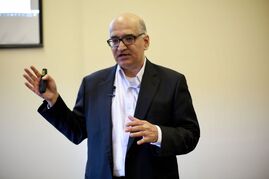 Jay Oza is an author, speaker, executive coach. He makes people thrive on high stakes stage whether it's for a job interview, a sales presentation or a high-stakes speech. He is the author of a practical book Winning Speech Moments: How to Achieve Your Objective with Anyone, Anytime, Anywhere. You can get this book on Amazon for 99 cents for a limited time. Please download the free speech checklist that you can use to help you create a winning speech for any situation. Please contact him if you would like to have a two 75 minute coaching session on job interviewing or high-stakes speaking. If you are interested in inviting him to give a talk on job Interviewing or high-stakes speaking. You can reach him at [email protected]. Have you tried calling your unemployment office during the pandemic? I live in New Jersey, and it's impossible. My unemployment benefits stopped without any explanation. I have tried email, phone, mail, calling my Congressmen Frank Pallone's office. I have not gotten any response. My benefits stopped in May. We are now in middle of August (as of this writing), and I have not heard from the unemployment office. At this point, I don't think I will get any needed support from the government that was promised. So why have a program if the government can't support it? This makes the government look totally incompetent. Now you know why people distrust the government since they are good at creating programs fast for political gains, but terrible at providing a good experience. ##### 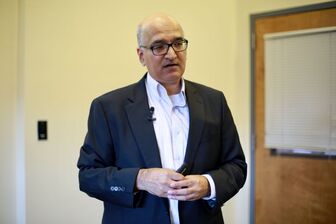 Jay Oza is an author, speaker, executive coach. He makes people thrive on higstakes stage whether it's for a job interview, a sales presentation or a high-stakes speech. He is the author of a practical book Winning Speech Moments: How to Achieve Your Objective with Anyone, Anytime, Anywhere. You can get this book on Amazon for 99 cents for limited time. Please download the free speech checklist that you can use to help you create a winning speech for any situation. Please contact him if you would like to have a two 75 minute coaching session on job interviewing or high-stakes speaking. If you are interested in inviting him to give a talk on job Interviewing or high-stakes speaking. You can reach him at [email protected]. If you want to win at the highest level, you must produce excellent stats that show that you are gaining on your competitors at each step toward a win. However, stats don't always predict a win. Still, it will undoubtedly tell you that you were in an excellent position to win. You must also be bold and need some luck. You can't play it safe when the competition is fierce. At the highest level, everyone has the talent and is driven to do whatever it takes to win. This is what you see on the PGA Tour every week. It is very difficult to make it on the PGA tour and even harder to make the cut in a tournament. Half of the players who play in a tournament do not get to play on weekends; hence, do not collect a paycheck. You not only have to have the game to be on the tour but not think that one shot could end up determining whether you make a paycheck or go home and try again. No one deals with instant rejection way golfers do. And remember players who play on the tour are top golfers in the world. They all have the game to win any tournament. Each year, roughly 30 to 40 players win a tournament. At most, only four players can win major tournaments like the Masters, US Open, British Open, and the PGA Championship. Winning a major is a big deal since it puts a golfer in a very special category in golf. This is what I observed watching the 2020 PGA Championship won by Collin Morikawa. He led in key stats used in golf called strokes gained, but that alone did not lead to his win. It put him in an excellent position to win. To win, he had to make a bold decision and get a little lucky. He pulled out his driver on the risk/reward 16th hole and said: "Screw it, let's make something happen." Indeed he did. He hit the shot of the tournament as the ball stopped 7 feet from the hole. He eagled the hole and went on to win the tournament by two strokes over Dustin Johnson and Paul Casey. But when you look deeper, you see how close this tournament really was. And the hole that was pivotal in deciding who won the tournament was the 16th hole. We all are going to face a risk/reward 16th hole in what we do. Are you going to play like Morikawa to win? Or are you going to play it safe? Luck trumps good stats and boldness I will use two players who hit an excellent shot on the 16th hole. One was Bryson DeChambeau, and the other was Collin Morikawa. Bryson Dechambeau hit a terrific drive, but the ball bounced and veered to the right and stopped on the fringe of the green pin high. Since the ball was on the fringe, it made the eagle putt difficult. DeChambeau missed by a little and birdied the hole. Birdie is good, but eagle is better. A group later, Colin Morikawa hit a drive of his life that bounced on the fairway near the green and luckily got a good bounce, and the ball stopped 7-foot from the hole on the green making the eagle putt easier. Morikawa made the eagle putt and parred the next two holes to win the tournament. Watching golf on TV lets you clearly see what we all need to do to win majors in our field.
##### 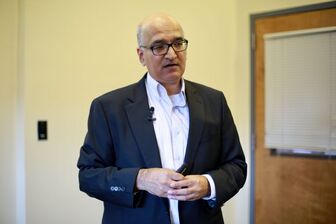 Jay Oza is an author, speaker, executive coach. He makes people thrive on high stakes stage whether it's for a job interview, a sales presentation or a high-stakes speech. He is the author of a practical book Winning Speech Moments: How to Achieve Your Objective with Anyone, Anytime, Anywhere. You can get this book on Amazon for 99 cents for limited time. Please download the free speech checklist that you can use to help you create a winning speech for any situation. Please contact him if you would like to have a two 75 minute coaching session on job interviewing or high-stakes speaking. If you are interested in inviting him to give a talk on job Interviewing or high-stakes speaking. You can reach him at [email protected]. When there is a negotiation or any meeting taking place taking place related to government business, it should be streamed on the Internet on CSPAN channels. We need to know what is going on so we can make up our minds. Right now, there is very little transparency in the government. What happens when there is no transparency? We are subjected to spinning and everyone goes into their corners and division is further exacerbated. Will transparency reduce division. Probably not, but at least we will know whether the politicians are doing a good job and whose interests are they serving. I say, give transparency a chance and let the chips fall where it may since what we have right now is not working. ##### 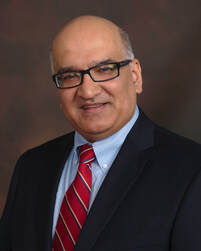 Jay Oza is an author, speaker, executive coach. He makes people thrive on high stakes stage whether it's for a job interview, a sales presentation or a high-stakes speech. He is the author of a practical book Winning Speech Moments: How to Achieve Your Objective with Anyone, Anytime, Anywhere. You can get this book on Amazon for 99 cents for limited time. Please download the free speech checklist that you can use to help you create a winning speech for any situation. Please contact him if you would like to have a two 75 minute coaching session on job interviewing or high-stakes speaking. If you are interested in inviting him to give a talk on job Interviewing or high-stakes speaking. You can reach him at [email protected]. The purpose of any interview is to show up, stand out, and secure an offer. If you are meeting Joe Biden, then you are on a shortlist of potential candidates. You will prepare to show up. But you still don't have an offer, So what do you do to stand out? You must seize control during the interview. Seizing Control This is the most important part of any job interview. The reason for this is that the interviewer will take a very short time to make a go/no-go decision; hence, you must seize control very early. The best way to do this is to have a three-minute pitch ready to be delivered on why you should be hired. The purpose of the pitch is to steer the conversation toward a direction where you can score points and win. To pull this off, you need to script the pitch first, practice hard and perform at the interview. In this post, I have shown the script of a pitch I would use to seize control. Look, you don't have to like Joe Biden to do this exercise. This exercise is all about how you would show up, stand out, and secure an offer if you were under consideration for the VP job. This what we all have to do when we are on a shortlist for a job. I coach people on job interviewing, and getting my clients to do a three-minute pitch is very hard, including those pursuing executive-level jobs. Most never do it no matter how much I encourage them. The only conclusion I can draw from this is that getting rejected is a lot easier than making a three-minute video that could help them get the job they want. People don't like to put in the work that is necessary. Interviewing is the most important skills for success. If you would like to learn more, you can watch the talk I gave on this topic: Interviewing is the Most Important Skill for Success... Today. Why three-minute speech is important to getting a job? A three-minute pitch is important because it allows you to focus, based on your research, on what will resonate with the interviewer. You don't want to think during the interview. You want to do most of your thinking before the interview during your preparation. Preparing for a job interview is no different than how PGA professional golfers prepare for major golf tournaments, if not all tournaments. I was watching the PGA Championship, and when golfers were interviewed after their round of play, they all tend to say they tried to stick to their process and not think on the course. The winner of the tournament will be the player who has a good game plan and can execute well will walk away with the Wanamaker trophy. The three-minute speech will allow you to stand out in any interviews, including interviewing for the VP job in any field and likely securing a job offer. Does this mean you will always walk away with a job offer? No. It just means that you will have done everything in your power to stand out. The decision to hire you is outside your control. Similarly, a golfer can only control the ball he or she is hitting. A golfer can't control how others play the game. Rough Script of the Three-Minute Pitch for the VP Job ( Indented ) I wholeheartedly agree with you when you say that the soul of our country is at stake in this election. I believe as you do that the experiment to make this a perfect union will end if we don't win in November. That's why it's critical that you pick the VP that will give you the best chance to win in November, and help you move this country toward the vision of our modern founding fathers like John Lewis. So what does restoring the soul of our country mean to me? It has two parts. One is believing in fundamental American beliefs; second, governing and prioritizing based on those beliefs. Fundamental American Beliefs The traditional American beliefs have been life, liberty, and pursuit of happiness. But we need to revise that since we have lost our ways since Donald Trump became president. We need to restore beliefs in the following: Constitution Democracy Justice Decency Facts Science Compassion Equality When we start becoming more like autocratic countries, we start losing the soul of our country. Time has come to revise the Declaration of Independence and come up with a Declaration of Revival. Governing Beliefs The second part is to govern based on those fundamental beliefs. We have to strengthen our national security, economic security, and future security. National Security
America is first when it leads, not when it follows or hides. With your leadership and the outstanding team you will put together, I know America will again be the leader of the free world. And when that happens, the world will be a better, safer, and prosperous place. And I will contribute in any way I can to make that happen. Now it's your turn to come up with a script of a three-minute pitch you would use if you were under consideration for the VP job. If you don't do it for this exercise, you will need one when you are interviewing for a job. It will increase your chances of securing an offer. #####  Jay Oza is an author, speaker, executive coach. He makes people thrive on high stakes stage whether it's for a job interview, a sales presentation or a high-stakes speech. He is the author of a practical book Winning Speech Moments: How to Achieve Your Objective with Anyone, Anytime, Anywhere. You can get this book on Amazon for 99 cents for limited time. Please download the free speech checklist that you can use to help you create a winning speech for any situation. Please contact him if you would like to have a two 75 minute coaching session on job interviewing or high-stakes speaking. If you are interested in inviting him to give a talk on job Interviewing or high-stakes speaking. You can reach him at [email protected]. |
AuthorJay Oza Archives
July 2024
Categories
All
|
© 2017 Winning Speech Moments



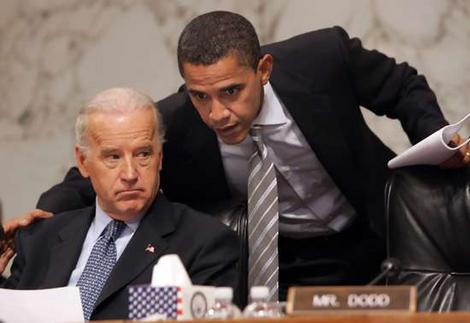

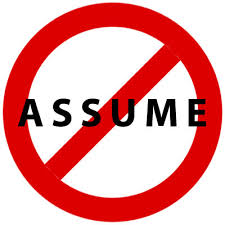
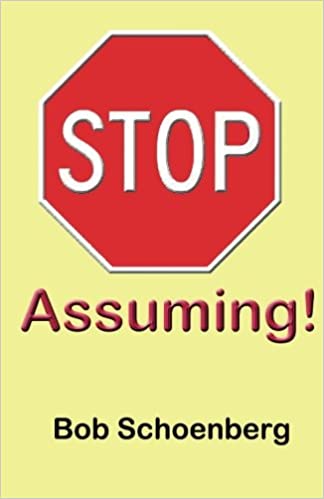
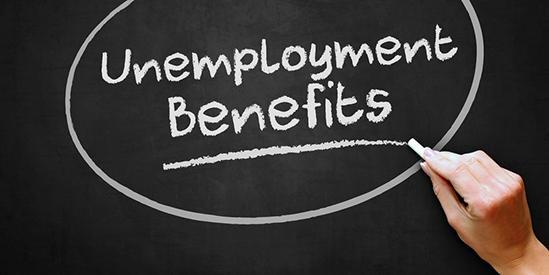
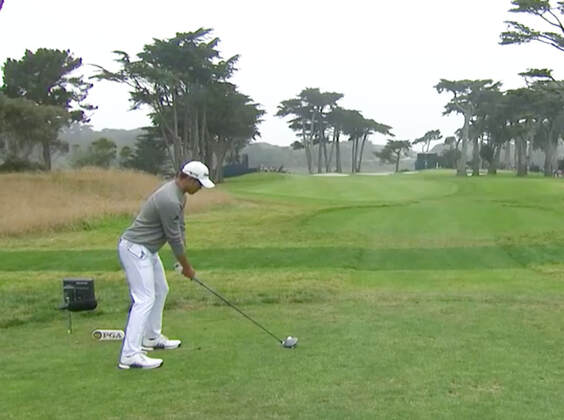

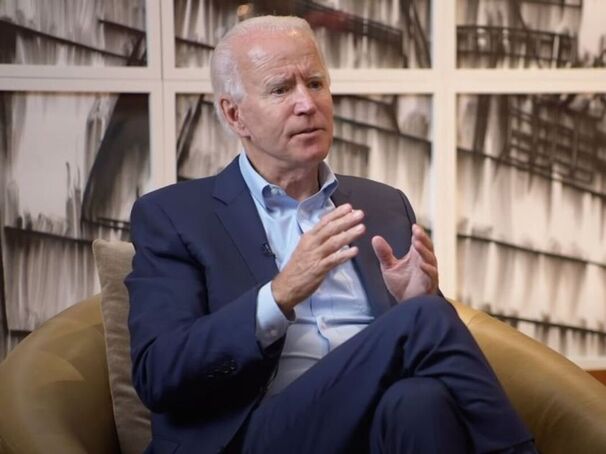
 RSS Feed
RSS Feed